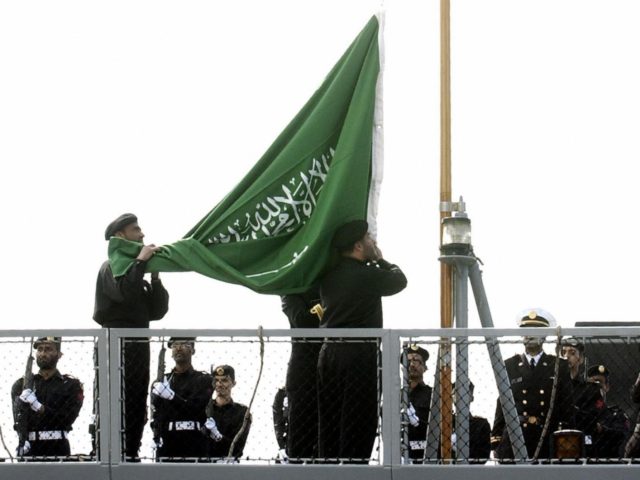Saudi Arabia said Wednesday it joined Australia, Bahrain and the United Kingdom in a US-led maritime coalition to secure the Mideast’s waterways amid threats from Iran after an attack targeting its crucial oil industry.
The kingdom’s decision to enter the International Maritime Security Construct (IMSC) foreshadowed a planned visit by U.S. Secretary of State Mike Pompeo.
Yemen’s Iranian-backed Houthi rebels claimed the weekend drone attack, but the U.S. and Saudi Arabia say they suspect Iran carried out the assault. Iran denies the claim.
The state-run Saudi Press Agency carried a statement Wednesday morning quoting an unnamed official confirming the kingdom had joined the IMSC. It said:
The kingdom’s accession to this international alliance comes in support of regional and international efforts to deter and counter threats to maritime navigation and global trade in order to ensure global energy security and the continued flow of energy supplies to the global economy and contribute to maintain the international peace and security.
The coalition aims to secure the broader Persian Gulf region. It includes surveillance of the Strait of Hormuz, the narrow mouth of the Persian Gulf through which a fifth of the world’s oil travels, and the Bab el-Mandeb, another narrow strait that connects the Red Sea and the Gulf of Aden off Yemen and East Africa.
Smaller patrol boats and other craft will be available for rapid response. The plan also allows for nations to escort their own ships through the region.
It’s unclear what direct role the kingdom will play in the coalition. Bahrain already serves as the headquarters of the US Navy’s 5th Fleet.
In recent months, the U.S. has accused Iran of targeting several oil tankers in and around the Strait of Hormuz from Saudi Arabia, Norway, and Japan.
Tensions between Iran and the United States have intensified since U.S. President Donald Trump pulled America out of the controversial 2015 JCPOA nuclear deal between Tehran and American-led world powers.
The Trump administration reimposed sanctions suspended under the accord as part of an unprecedented wave of restrictions currently choking the Iranian economy.

COMMENTS
Please let us know if you're having issues with commenting.